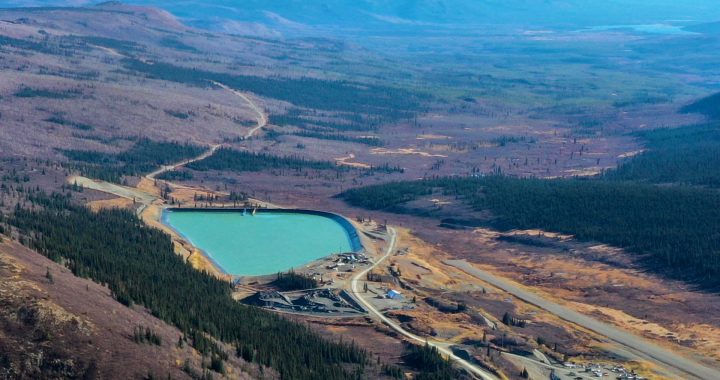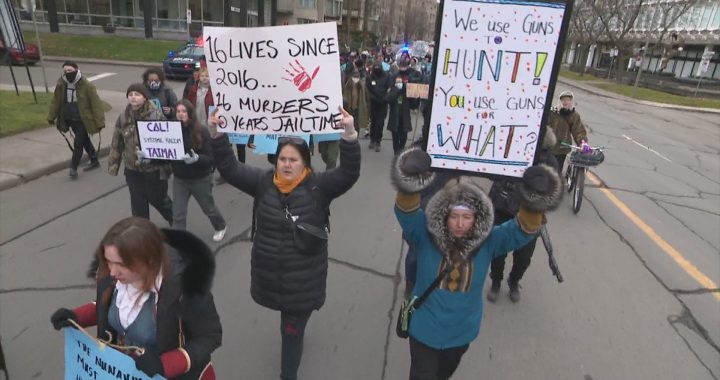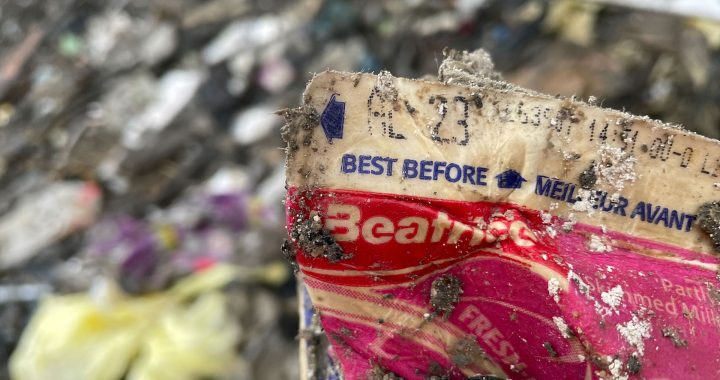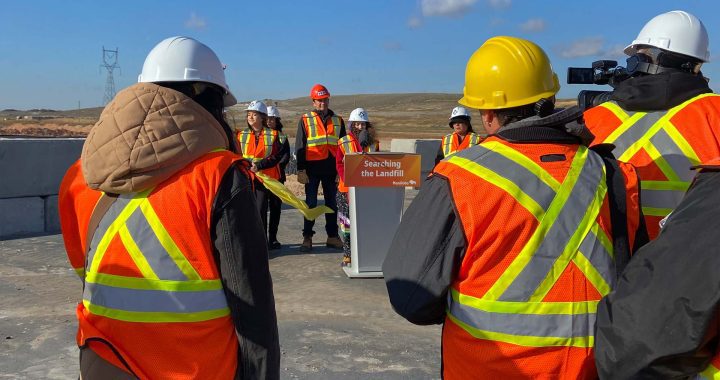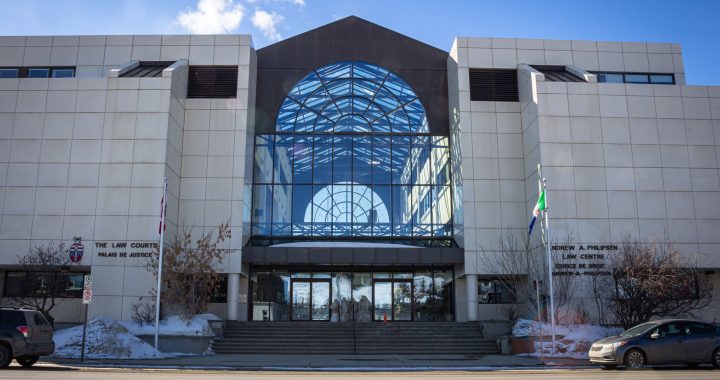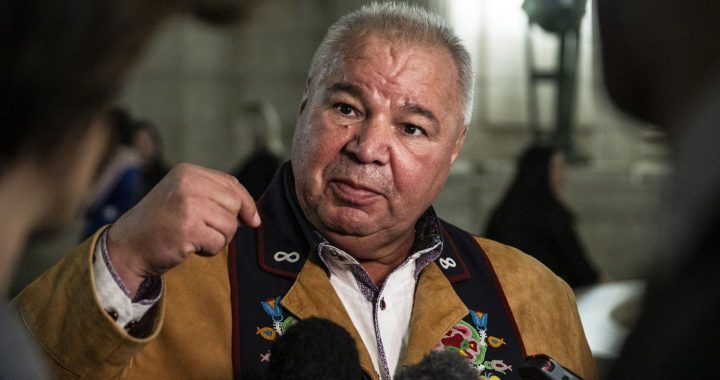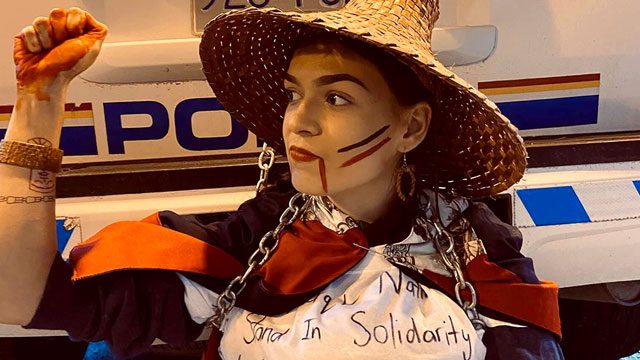
Concern for the safety of youth who are chaining themselves to police cars and stopping trains across the country is prompting a member of the Wet’suwet’en Nation in B.C. to propose a rare all-clans meeting, APTN News has learned.
The meeting is suggested in a letter sent recently to Indigenous and non-Indigenous elected and hereditary chiefs and politicians including Scott Fraser, the province’s minister of Indigenous Relations and Reconciliation, and Nathan Cullen, provincial liaison with Wet’suwet’en hereditary chiefs, said Andrew George, whose hereditary title is Skit’den.
Skit’den is a wing chief of the Gidimt’en, Grizzly house, within the Wet’suwet’en Bear Clan, whose yintah or traditional territory is presently where the RCMP is enforcing an injunction against people who oppose construction of a natural gas pipeline in a remote part of northern B.C.
Solidarity protests are escalating across Canada at buildings, ports and railway tracks, which is worrying Wet’suwet’en Elders, an emotional George in a telephone interview Tuesday.
“By participating in what currently is going on does not reflect the true governance of the Wet’suwet’en – on both sides,” he said.
“Because when you look at what’s happening with the youth, it’s spreading like wildfire but there’s no control.”
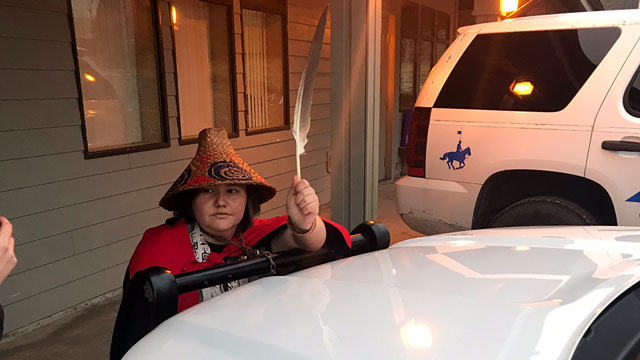
(Ayla Brown chained herself to a patrol car outside the RCMP detachment in Bella Bella, B.C. Facebook photo)
The meeting would take place in the Wet’suwet’en Feast Hall, a sacred place where hereditary business is discussed, debated and decided.
“We are afraid something bad might happen,” added George, whose hereditary title means ‘wise man.’
“I’ve been talking to the Elders; a majority of the Elders have not been consulted.”
George, who lives outside his territory, said after sending the letter he now has to ask for the meeting in “a traditional” way.
“I’m going to have to go home and talk to the other clans about such a meeting. These meetings don’t happen very often. We would bring the whole Nation together and close the doors.”
George said he has already approached one of the chiefs and believes such a meeting is “doable.”
He said some hereditary chiefs, who have had their titles for more than 50 years, have also been left out of the process and share his concern about the safety of demonstrators and the fate of their inherent rights and title.
Attached to the letter, George said, was a memorandum of understanding (MOU) – a trust agreement – and “resolution on how to get through this.”
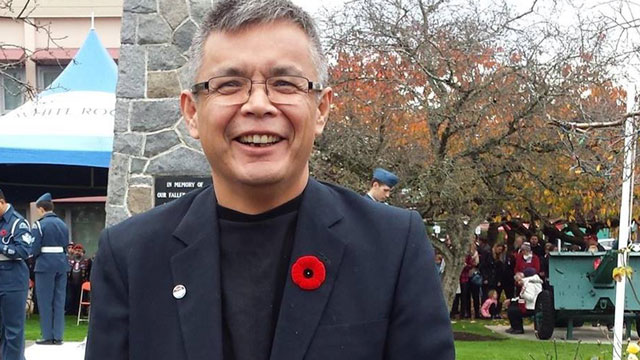
(Skit’den or Andrew George is trying to broker an all-clans meeting to resolve the pipeline impasse. Facebook photo.)
He said an all-clans meeting could be agreed to as soon as this week and would give each House group an opportunity to speak.
He said he appreciates what the youth and others are doing in support of their cause but feels someone needs to provide guidance.
In fact, he said his cousin Ron George was on the steps of the B.C. Legislature in Victoria Tuesday calling on the Wet’suwet’en Nation to take charge in this crisis.
“We are the proper rights holders based on Section 35 and Delgamuukw,” Andrew said of his House group that has lineage to pre-contact times.
“The only people that can issue Aboriginal rights and title are the Wet’suwet’en. It’s an inherent right.”
Despite debate among the public about who should be in charge, George said Canada’s Supreme Court acknowledged their traditional governance system and names of hereditary leaders in the Delgamuukw decision.
“We did win the recognition of our Aboriginal rights and title in 1997. But it’s been sitting idle since then,” he said, and waiting to become enshrined into law.
A move, he suggested, B.C. and Canada have been avoiding.
“They’ve been dragging their feet. We’ve been trying to deal with this since 1997 but resource extraction continues to this day.”

Such an important meeting should happen in the Feast Hall, Andrew added, noting that’s what this all-clan meeting would discuss.
“What should have happened was a true government to government discussion. If the federal government and the provincial government came to the Wet’suwet’en, and came into our Feast Hall to make a presentation on a proposed project – in a Feast hall which is very transparent – things would have been very different,” he said, his voice trembling.
“So when you sit down with a nation-to-nation talk that’s the missing piece in all of this…Instead of a gas company issuing Aboriginal rights and title. And that is very wrong.”
Protests, rallies and demonstrations have sprung up across Canada in support of the Unist’ot’en and Gidimt’en clans of the Wet’suwet’en, who have erected camps in the path of the Coastal GasLink natural gas pipeline.
The group is opposed to fossil fuel extraction on its traditional territory, and its members have been arrested in recent days as RCMP enforce a court injunction giving gas company contractors access.
Hereditary chiefs who support the group tried to broker nation-to-nation meetings with B.C.’s premier but failed before police moved in south of Houston, B.C.
READ MORE: A look at the conflict in the Wet’suwet’en Nation




